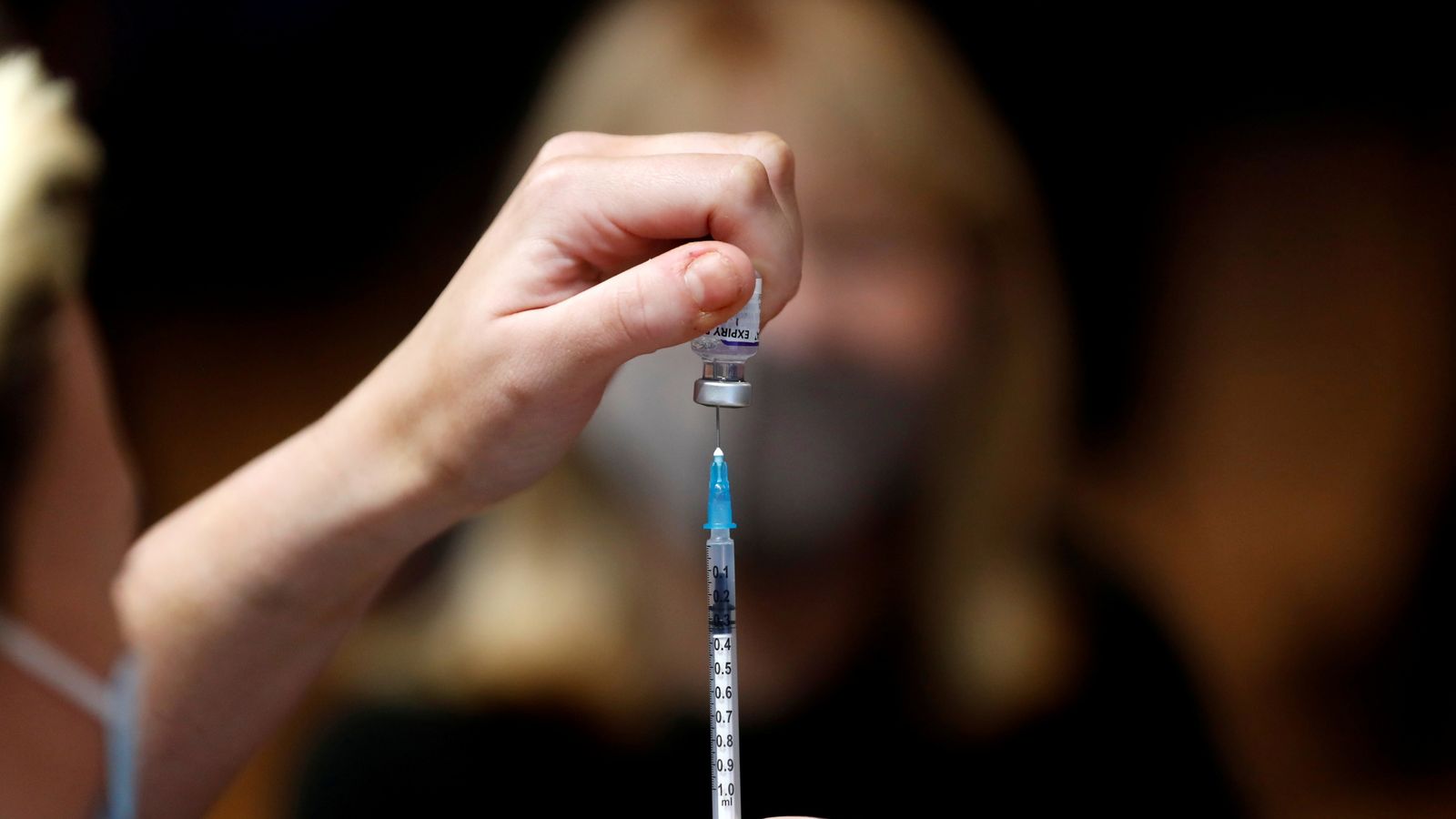A person’s previous COVID infections will determine their body’s immune response to future variants, according to new research.
“Immune imprinting” is the description given to the process when the first SARS-CoV-2 spike protein a person encounters – either by vaccination of infection – shapes their immune system’s ability to protect against variants and also affects the rate at which their immunity wanes.
This could impact the way in which coronavirus vaccines are developed in the future.
Live COVID updates from the UK and around the world
Please use Chrome browser for a more accessible video player
Instead of having a one-size-fits-all approach, developers could, researchers suggest, tailor vaccines according to a person’s infection history.
Professor Rosemary Boyton, from Imperial College London’s Department of Infectious Disease, said: “Our first encounter with spike antigen either through infection or vaccination shapes our subsequent pattern of immunity through immune imprinting.
“Exposure to different spike proteins can result in reduced or enhanced responses to variants further down the line.
COVID-19: Steps concert in Glasgow among sources of new Omicron cases in Scotland, Nicola Sturgeon says
COVID-19: Met Police yet to receive complaint over claims Downing Street breached COVID rules with party last year
COVID-19: ‘Keep calm and carry on with your Christmas plans’, says Conservative Party chair Oliver Dowden
“This has important implications for future proofing vaccine design and dosing strategies.”
Antibody levels wane over time following infection or vaccination, but this new research shows that an individual’s protective immune responses are also affected by which strain or combination of strains they have been exposed to.
Professor Danny Altmann, from Imperial’s Department of Immunology and Inflammation, said: “We’ve recently had some very large studies making the point that vaccine immunity wanes quite rapidly.
“This leaves us vulnerable to Delta breakthroughs, and protection can generally be rescued by a third dose.
“This study now offers considerable new detail about who is susceptible and when.
“You can be someone who made a great response to the vaccine and still fall prey to Delta breakthrough if you haven’t had a booster.”
He added: “The really surprising news was finding that people infected with the Alpha variant had such different patterns and waning of immunity to other variants.
“Immune imprinting means we’re now all walking around programmed slightly differently for our future protection.”
The research was conducted before the emergence of the Omicron strain and the scientists involved in the study stressed there was still insufficient data on the new variant of concern to draw any conclusions.
Follow the Daily podcast on Apple Podcasts, Google Podcasts, Spotify, Spreaker
Prof Altmann said he and his colleagues were confident the current crop of vaccines would offer good protection against the Omicron variant even though the multiple mutations of the spike protein were concerning.
He said: “I’m still kind of terrified by them.
“But I’m also kind of calmed by the on the ground data, saying that it looks like they’re in a country of fairly low vaccination uptake.
“Vaccines are holding up to some extent against it. And I think what it means for this country, I think it would kind of calm down, because the jury’s out.
“We’ve got a high level of vaccination and we don’t know if it can displace Delta.
“Currently, with the Omicron variant emerging, it’s vital that people get their booster vaccines.
“But in the future, we should consider how we can create vaccines that broaden our immune response even more to protect against other new variants of concern.”
The study is published in Science by a team from Imperial College London and Queen Mary University of London.
Your Omicron questions answered: Watch a special programme with COVID experts on Sky News at 7pm






















